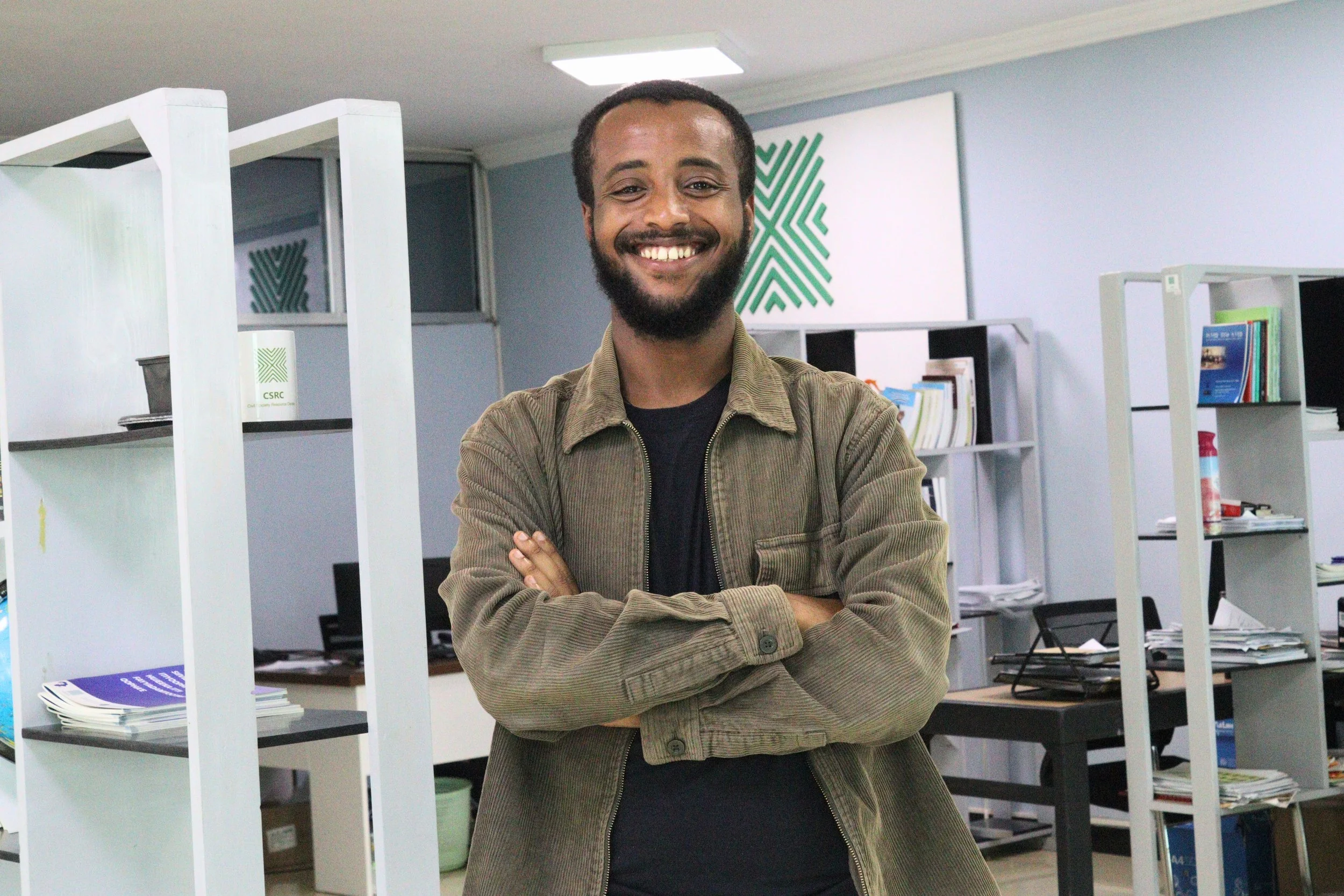Training the next generation of Civil Society Leaders
Context
The Emerging Civil Society Leaders Fellowship Program aims to mentor and train the next generation of civil society leaders in Ethiopia. 20 students from universities in Addis Ababa, Hawassa, and Bahir Dar were selected to become fellows based on their genuine interest to be involved in the Ethiopian CSO movement.
The fellowship program is one of five components of The Ethiopian Civil Society Engagement Program, which is funded by the Civil Society Innovation Fund (CSIF) and implemented by a consortium led by the Civil Society Resource Centre (CRSC), with Ethiopia Lawyers’ Association (ELA), Inclusive Vision for Democratic Ethiopia (IVIDE), Ethiopian Labour Rights Watch (ELRW) and Digital Rogue Society Experiment Group (DRSE.G).
The core objective is to create a more vibrant civic space in Ethiopia by providing potential civil society leaders with opportunities for training and professional development in leadership, institutional capacity strengthening, access to information, and networking.
Intervention
The Fellowship Program began in January 2023 with an open Call for Fellowship, advertised on social media, through student groups and representatives and in information sessions at universities in Addis Ababa, Hawassa and Bahir Dar. Applications were received from over 100 people, and 20 fellows were selected through a screening and interview process, conducted by CSRC.
The group was made up of five men and 15 women, with 16 from Addis Ababa, two from Hawassa and two from Bahr Dar. All were students who were studying Law or Political Science as these were deemed by CSRC as the most relevant and appropriate subjects.
The first phase of the program involved regular meetings, trainings and follow-ups with the fellows. Training was monthly and covered a wide range of areas such as leadership, CSO operations, strategic advocacy, project management, identifying innovative funding sources, grant writing and support with grant applications. The training was interactive and dynamic, and encouraged peer learning between fellows.
Following the initial training, CSRC assigned each of the fellows to a host organisation, based on their areas of interest. There were around ten hosts, including the Human Rights Council and Addis Powerhouse as well as some organisations from within the CSIF consortia, including Digital Rogue Society Experiment Group and Mizan Young Lawyers Center. The hosts provided work experience, giving fellows the opportunity to implement what they’d learned during the trainings. Hosts also provided consistent mentoring support as they worked.
CSIF funding supported training and workshops, as well as providing a transportation allowance for the fellows.
Changes achieved so far
The majority of fellows have made good progress, reporting feeling a heightened sense of purpose and confidence in their ability to effect change within civil society. They have gained professional skills, such as communication, time management, teambuilding and report writing, and strengthened their knowledge in specialist areas, including human rights and feminism. Through the fellowship itself and their experience at the host institutions, they have also boosted their professional networks.
The programme is CSRC’s flagship and, while it existed prior to CSIF, the additional funding has enabled them to strengthen it and to follow up with fellows.
““In general, this fellowship gives me an opportunity to attend training and workshops which is contributing to my leadership skills. In my experience at the host institution, such exposure has provided me with a new level of literacy on human rights and related concepts. I was also able to develop my research skills. In the process of writing proposals and exposure to every step I have gained skills of writing, teamwork and strategies to come up with a feasible and efficient proposal. Last but not least, it helped me to broaden my network which will be vital for my career.” ”
““This fellowship presented a noteworthy opportunity for continued professional growth and the expansion of my professional network. The fellowship not only allowed for the cultivation of skills in an organizational context but also facilitated the establishment of meaningful connections within the realm of feminist knowledge production.” ”
““I found the training on grant writing very valuable as a fellow in CSRC program. This is because I aspire to establish a CSO in the near future and grant writing is one of the most important concepts and even a skill to have.” ”
Fello Estifanos Gezahegn
Lessons and next steps
Careful selection of fellows, their active engagement, regular monitoring, and targeted training are key to the success of this kind of program.
The dismissal of several fellows from the program has reinforced the importance of the selection and recruitment process. While it was comprehensive before, in future, the process will focus more on exploring potential fellows’ commitment. CSRC will also seek to include the host institutions in the selection process in future.
The next phase of the program consists of a competitive call for innovative CSO startup ideas from fellows.


